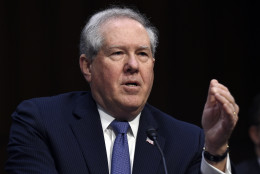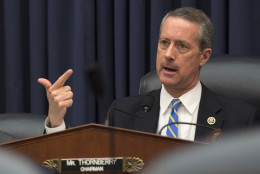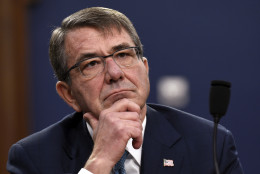Defense
-
The Defense Department announced it would be launching the federal government’s first-ever “bug bounty,” banking on the idea that there’s a nascent community of white hat hackers that's been itching to help the Pentagon with its cybersecurity challenges.
March 07, 2016 -
The Navy Department is making it clear that military members and civilians can be reassigned or dismissed from government service altogether if they don’t stay current on their cyber defense training.
March 07, 2016 -
The Navy is reviewing its acquisition processes to reduce complexity and give contracting officers more time to talk to industry in developing requirements.
March 07, 2016 -
More companies are trying to reach DISA's impact level 5 since DoD has such a high demand to store sensitive information.
March 04, 2016 -
Military facilities in "failing" condition increased from 7 percent last year to 19 percent this year.
March 04, 2016 -
DoD's proposed rule on independent research and development left more questions than answers for industry.
March 03, 2016 -
DoD's top procurement official said the laws keeping government officials from moving to the private sector are too stringent.
March 02, 2016 -
Navy officials say they must get prototypes of new systems into the hands of sailors and Marines more quickly before investing billions of dollars in producing new systems.
March 02, 2016 -
Lawmakers pushed for provisions of the Defending American’s Small Contractors bill to be folded into the 2017 NDAA.
March 01, 2016 -
The Pentagon itself does little to predict future spending on its biggest ticket items, according to a landmark study by the Government Accountability Office. Tim DiNapoli, GAO's director of acquisition and sourcing management issues, gives Federal Drive with Tom Temin all the details.
March 01, 2016 -
David Berteau, the assistant secretary of Defense for Logistics and Materiel Readiness, will join the industry association on March 28 as its next CEO, replacing Stan Soloway who left in the fall.
March 01, 2016 -
Kelley Sayler, associate fellow at the Center for a New American Security, tells Pentagon Solutions drones work better in groups.
February 29, 2016 -
Defense Secretary Ash Carter punched back at Congress after some lawmakers doubted the necessity of the Force of the Future initiative.
February 29, 2016 -
At 22, Jarrett Zubiate was managing a Verizon store, but he wanted more. Trained as a Navy hull technician, he stepped off the fleet to become a recruiter. Zubiate talks to Federal Drive with Tom Temin about being named the Navy's enlisted recruiter of the year.
February 29, 2016 -
Reports of counterfeit parts making it into sensitive Defense Department systems have steadily declined since agencies were required to make those reports in 2013. Marie Mak, director of acquisition and sourcing issues at the Government Accountability Office, tells Federal Drive with Tom Temin why.
February 29, 2016















